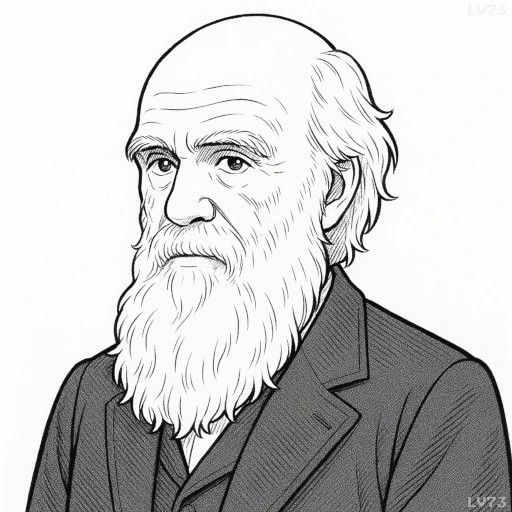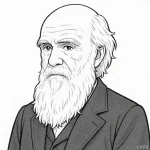“False facts are highly injurious to the progress of science, for they often endure long; but false views, if supported by some evidence, do little harm, for every one takes a salutary pleasure in proving their falseness.”

- February 12, 1809 – April 19, 1882
- Born in England (UK)
- Naturalist, geologist, biologist
table of contents
Quote
“False facts are highly injurious to the progress of science, for they often endure long; but false views, if supported by some evidence, do little harm, for every one takes a salutary pleasure in proving their falseness.”
Explanation
In this quote, Charles Darwin distinguishes between the harmful effects of false facts and false views on the progress of science. He suggests that false facts, once established, are particularly dangerous because they can persist and mislead future generations of researchers, obstructing the advancement of knowledge. In contrast, false views—ideas or theories that may be based on some evidence but ultimately prove to be incorrect—are less damaging because they can be debunked through scientific inquiry. Darwin emphasizes that the scientific community has an inherent interest in disproving mistaken theories, and the process of refuting falsehoods is part of what drives scientific progress.
Historically, Darwin’s own work was shaped by this approach. His theory of evolution through natural selection was initially met with resistance, and many of the early arguments against it were based on false facts or misinterpretations of evidence. For example, the misunderstanding of fossil records or miscalculations in the rate of change over time were common barriers to acceptance. However, as more evidence supporting Darwin’s ideas emerged, it became easier to challenge the false views and gradually replace them with more accurate scientific understanding. Darwin’s careful attention to evidence and his willingness to correct errors helped his theory of evolution endure, despite the initial challenges.
In modern times, this quote remains highly relevant in the era of misinformation and scientific discovery. With the rise of the internet and social media, false facts can spread quickly, and they often become deeply entrenched in popular belief, causing significant setbacks in public understanding of topics like climate change, vaccination, or genetics. However, Darwin’s distinction between false facts and views encourages a more optimistic perspective: while false facts may hinder progress, false theories can often be disproven with the right evidence and scientific rigor. The scientific community continues to value the process of disproof, as new data and methods constantly refine our understanding of the world.
Would you like to share your impressions or related stories about this quote in the comments section?



